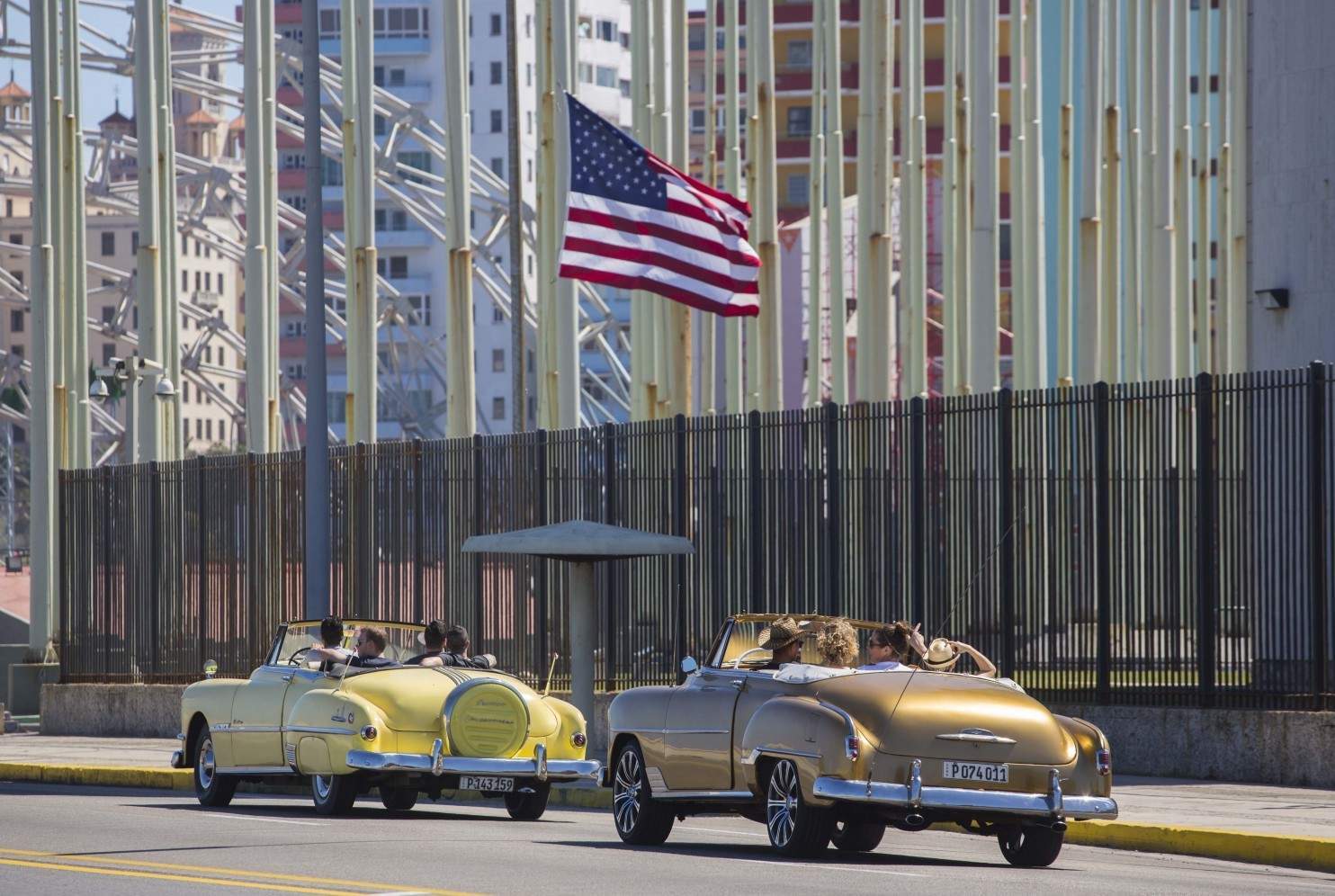
Vintage American convertibles pass by the U.S. Embassy in Havana on Thursday. (Desmond Boylan/Associated Press)
IN SCHEDULING a visit to Cuba next month, President Obama broke his word about the conditions under which he would offer that gift to the Castro regime. Just two months ago, the president said that he would travel to Havana only “if, in fact, I with confidence can say that we’re seeing some progress in the liberty and freedom and possibilities of ordinary Cubans.” On Thursday, the White House acknowledged the obvious — that there has been no such progress. Mr. Obama is going anyway: “It’ll be fun,” he said.
This is not the first time the president has ditched a pledge to connect greater U.S. engagement with Cuba to political liberalization. When he renewed U.S. diplomatic relations with the Castros in 2014, he disregarded his promise that normalization would require “significant steps toward democracy,” as well as a vow to consult with Cuban civil society before going forward. It’s little wonder that since the opening, political detentions and beatings of Cubans have spiked, and imports of U.S. goods have fallen steeply: The regime perceives that Mr. Obama is so intent on what he regards as a major legacy that it need do nothing in exchange for his concessions.
Those have been abundant and lucrative for the Castros. U.S. visitor traffic to Cuba is up by more than half, and remittances to the island flow more freely, meaning the regime is collecting billions in precious hard currency. The regime is using the prospect of U.S. investment to attract business from other countries, such as China, while not actually allowing in American firms. Dissidents say Raúl Castro is methodically using the fresh resources to fortify the communist regime for the long term.
The White House doesn’t really dispute these facts. Instead it argues that the way to overcome the failures of its policy is to unilaterally offer still more “engagement.” “A presidential visit is a forcing mechanism,” deputy national security adviser Ben Rhodes told the media. “I think it has the potential benefit of making our government and the Cuban government do as much as we can to make normalization move forward.”
We’d like to believe that. It is certainly the case that Mr. Obama is enormously popular in Cuba, where many people fervently hope that his initiatives will bring change to a country stuck in a putrid Stalinism. Sometimes expectations stirred by charismatic outsiders can create uncontainable pressure on dictatorships — witness Pope John Paul II’s 1979 visit to communist Poland.
If the president’s visit is to serve that purpose, however, it must be designed with the Cuban people, not the Castros, in mind. Mr. Rhodes said the president’s two-day schedule is still being roughed out and that he will meet with opponents of the regime as well as Raúl Castro. But will Mr. Obama address Cubans directly, in places where thousands of ordinary people — not hand-picked party cadres — can see and hear him? Will he visit private businesses? Will he give an interview to Yoani Sánchez, the country’s renowned independent journalist?
The regime will seek to prevent all such activity, which is why Mr. Obama should have negotiated it before committing to the trip. Asked if the administration had lost its leverage, Mr. Rhodes offered that “what [the president] says and how the trip goes will depend on whether we are demonstrating progress.” Let’s hope that at least that pledge is honored.
Source: Washington Post
